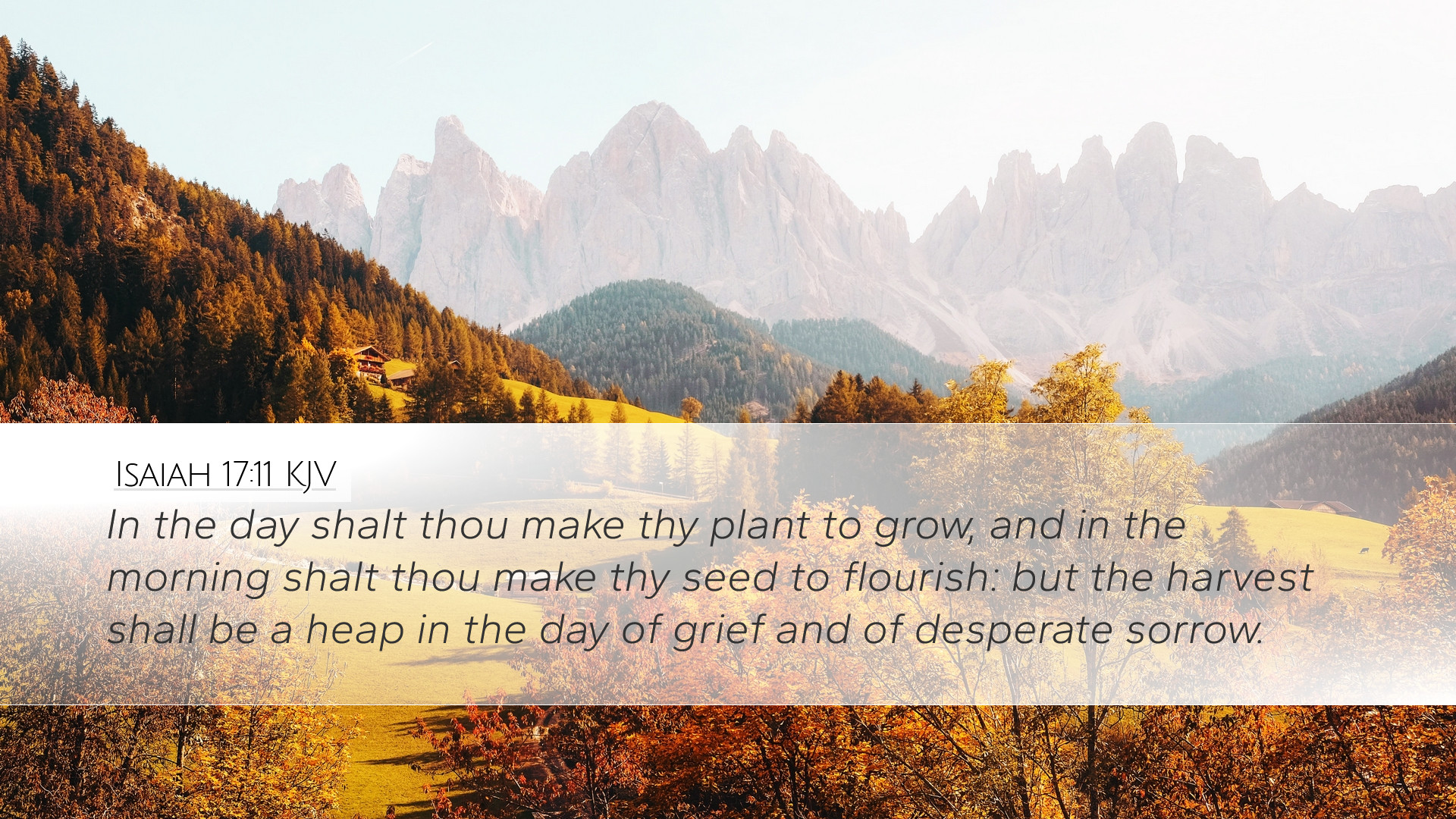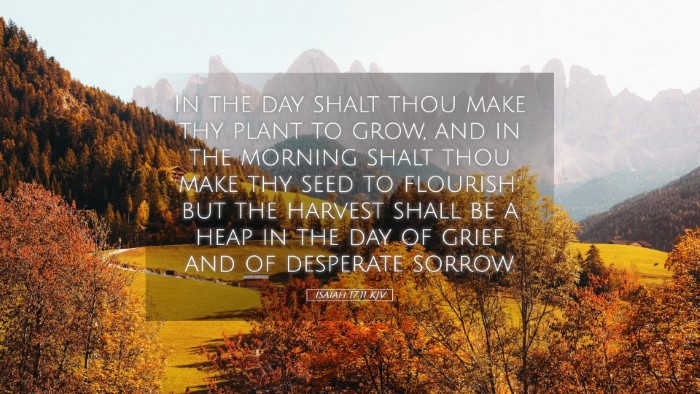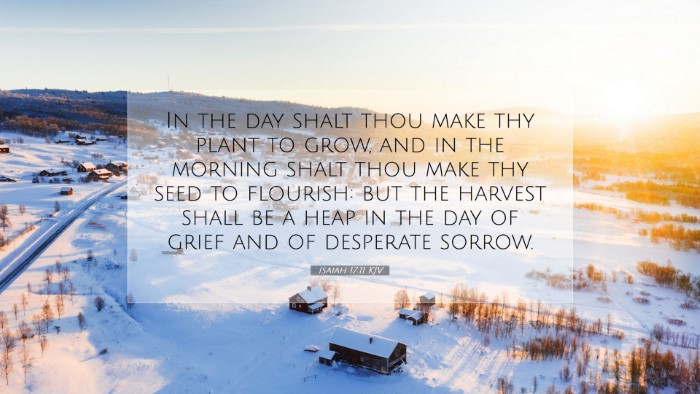Commentary on Isaiah 17:11
Verse Text: "In the day that thou shalt make thy plant to grow, and in the morning shalt thou make thy seed to flourish: but the harvest shall be a heap in the day of grief and of desperate sorrow."
Introduction
The verse of Isaiah 17:11 provides profound insights into the themes of judgment, hope, and the transient nature of human endeavors. This commentary draws from the observations of esteemed theologians, including Matthew Henry, Albert Barnes, and Adam Clarke, aiming to present a cohesive understanding for pastors, students, theologians, and scholars.
Contextual Background
Isaiah prophesizes during a time of impending judgment upon Israel and neighboring nations. The surrounding political turmoil and spiritual decline form the backdrop against which this verse emerges. It reflects the consequences of trust misplaced in human strength and alliances, particularly in relations to neighboring nations like Damascus (Syria).
Exegesis of the Verse
Literal Interpretation
The imagery in Isaiah 17:11 conveys agricultural metaphors that are richly layered with meaning. The "plant" and "seed" symbolize efforts that commence with promise but culminate in disappointment. The transition from "morning" to "harvest" evokes the fleeting nature of earthly endeavors.
Analysis of Key Terms
- "Plant": This represents the initial stages of any human endeavor, flourishing with potential but conditional upon divine blessing.
- "Seed": Symbolizes beginnings and the promise of growth. It alludes to the flourishing faith that can decay if not nurtured rightly.
- "Harvest": The culmination of efforts, but in this context, it signifies the sharp transformation from abundance to despair.
- "Day of grief": Refers to the time of reckoning, when human efforts falter amid divine judgment.
Theological Implications
In examining the theological dimensions of Isaiah 17:11, we recognize the tension between human agency and divine sovereignty. The attempts to establish security through might or alliances are rendered futile without God’s favor. This truth resonates throughout scripture, emphasizing that true success is contingent upon God’s blessing.
Matthew Henry's Insight
Henry notes that while there is a time for planting and a season for harvesting, the ultimate outcome—particularly in the context of sin and turning away from God—results in a "heap" of sorrow. He underscores that earthly endeavors, without a foundation of righteousness, lead to spiritual desolation.
Albert Barnes' Viewpoint
Barnes highlights the prophetic nature of the warning given to Israel. He elaborates on the certainty of divine judgment that eclipses the initial optimism of growth. He explains that the harvest mentioned signifies the final outcome of human efforts devoid of divine endorsement, reinforcing the need for reliance upon God.
Adam Clarke's Explanation
Clarke discusses the contrast between the anticipated joy of harvest and the bitter reality of destruction. He poignantly remarks on the futility of efforts without divine blessing, illustrating that even when growth appears certain, spiritual negligence leads to collapse. Clarke emphasizes not only the despair but also the opportunity for repentance before it is too late.
Applications for Today
Isaiah 17:11 serves as a stirring reminder for contemporary readers about the significance of aligning one’s efforts with God’s purposes. For pastors and theologians, this verse prompts reflection on the nature of ministry, reminding leaders and congregants alike that reliance on human strategies without seeking divine intervention can lead to spiritual barrenness.
Reflection Questions
- In what areas of life are we attempting to "make our plants grow" without seeking God's guidance?
- How can the church today embody reliance on God in her mission and ministries?
- What steps can we take to turn potential "heaps of sorrow" into flourishing works through faithful obedience?
Conclusion
Isaiah 17:11 encapsulates the tension of hope amidst despair, underscoring the need for divine partnership in our pursuits. The reflections of Henry, Barnes, and Clarke harmonize to convey a singular theological truth: without God’s blessing, our labors, however promising, ultimately yield nothing but sorrow. As we engage with this scripture, let it challenge our faith and encourage a deep reliance on our sovereign God.


